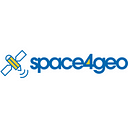
The Geographic Information Systems and Remote Sensing Centre -SIGTE- of the University of Girona, a service that involves applied research, training, knowledge, and technology transfer.
- Short description of the organization
The Geographic Information Systems and Remote Sensing Centre -SIGTE- of the University of Girona (UdG) is a service specialized in the treatment of geographic information and the use and application of the so-called Geo-ICT — information and communication technologies applied to the management of geographic information.
SIGTE offers technical support, advice, training, and technological solutions in the field of geographic information based on free technology, thereby contributing to the use of free software and open knowledge, to members of the university community, as well as to the public and private organizations.
Our areas of expertise are data capture, analysis, processing, and visualization of geographic information and the development of desktop and web geo-applications for management or communication purposes.
With more than 20 years of experience developing and carrying out projects, SIGTE sustains and promotes the creative and innovative spirit needed to be at the cutting edge of a highly technological and dynamic sector.
Team: SIGTE is made up of a diversified team of geographers, environmentalists, computer scientists, educational psychologists, and communicators, which allows us to broaden horizons and bring divergent perspectives to the tasks we perform, from the most mundane and automatic tasks to the most exceptional ones.

2. How does SIGTE currently support the development of GI and EO skills?
SIGTE supports the development of GI and EO skills from different points of view.
University of Girona community: We provide support and advice to the university community (researchers, administrative and service staff and for students) related with geographic data processing in projects in any field.
Innovation: We develop projects that apply, in the real world, the latest technological advances in GI and EO, creating a space through which the research and the technologies emerging from this sector are transmitted.
Training: We design and coordinate educational programmes in GIS to train professionals, adapting our proposals to the requests and demands of the market and offering various formats: on-site training, online training, intensive courses, customized courses, etc.
One of our most emblematic projects, with a history of more than 20 years, is the Master’s and postgraduate programs in Geographic Information Systems (UNIGIS Girona).
The UNIGIS master’s programme includes a subject about ‘Remote Sensing’, where students learn about the Copernicus programme and how to obtain, process, and analyze Sentinel images.
In the field of Earth Observation, we’ve recently developed Edusat, an open educational platform for exploring the principles of remote sensing simply and educationally.
Dissemination: We provide spaces for the exchange of knowledge and information among a wide audience, while at the same time striving to disseminate and promote GIS in society through the organization of and participation in lectures, seminars, conferences, etc.
Since 2007 we organize the Free GIS Conference (Jornadas de SIG Libre). The benchmark event in the field of FOSS GIS in Spain.

3. What do you think we need in order to improve GI and EO skills in Europe?
To improve GI and EO skills in Europe, it should be guaranteed that these disciplines are included in degrees and master’s related to earth sciences.
Creating quality educational materials about GI and EO for the non-specialized public, and open them to society, is also an option to contribute to improving these skills. We think that edusat, the platform that we have developed to explore the principles of remote sensing, is a clear example of that because it’s an open resource prepared for a wide audience, not just for experts in GI and EO fields.
However, a very important way to improve the skills in GI and EO, it’s promoting its value and why these areas of knowledge are useful and important. Organizing workshops, webinars, and different kinds of activities for non-expert audiences to bring the GI and EO sectors closer as a support, for instance, to understand and identify the effects of natural and man-made changes that occur on Earth: fires, floods, urban development, deforestation…
Promoting forums and GI/EO communities is especially useful for that purpose. It will contribute to share knowledge, establish new relations and partnerships and, at least, improve skills.
Finally, promoting the development of open-source tools and software to access, process, and analyze GI and EO data is also fundamental to put in practice the theoretical knowledge.

4. Why was it important for you to join EO4GEO?
The EO/space sector is growing to support the technological and economical future in Europe. Identifying the new skills that will be important to support these changes and contributing to bridging the gap between the supply and demand of education and training in space/geospatial sectors it’s a clear purpose and aim of EO4GEO project.
And in this sense, the SIGTE expertise and knowledge can help, improve and contribute to follow the objectives of the project. Taking into account our experience, developing projects related to GI and EO, and preparing educational materials and training for multiple courses, we could actively contribute to the EO4GEO initiative.
It’s also a great opportunity to join the EO4GEO community, being part of a network of experts in the field of GI and EO, and sharing knowledge, and identifying the future needs and challenges of the sector.
We have been directly involved in other related projects to GI and education, such as GI-N2K, so, the EO4GEO is for us a continuity of the work done.








